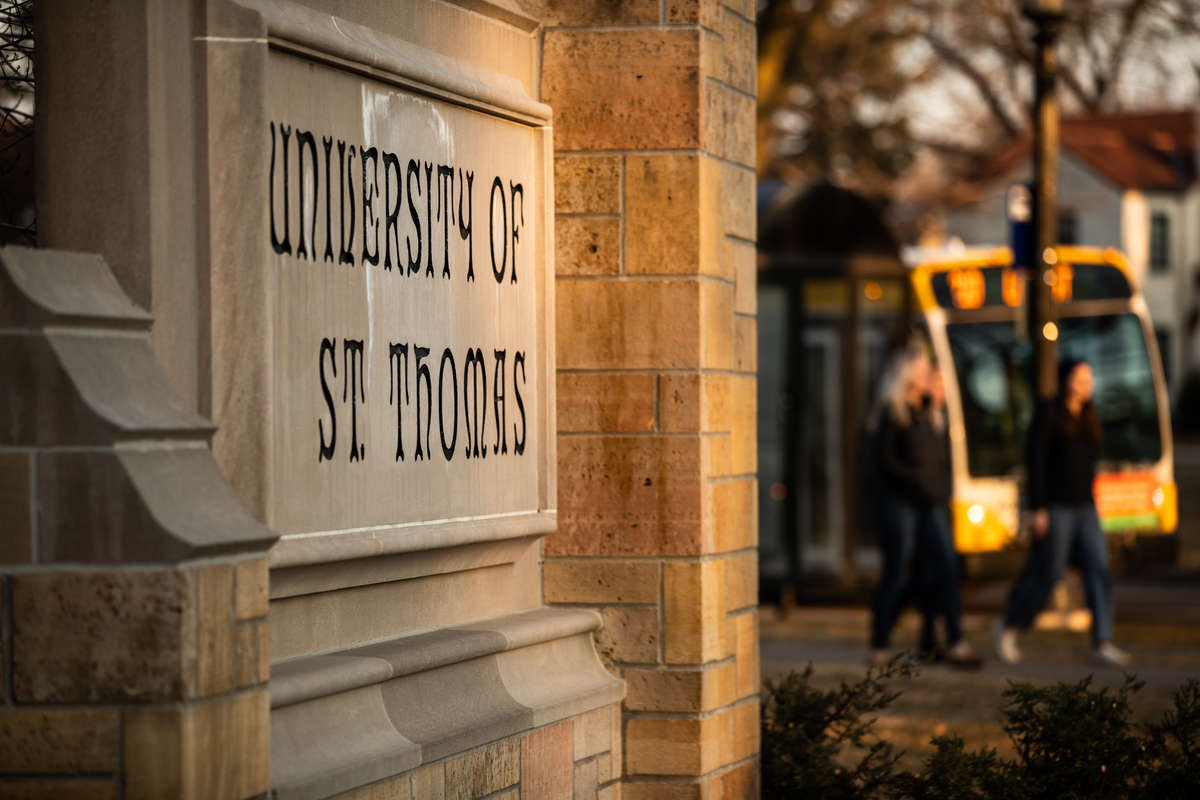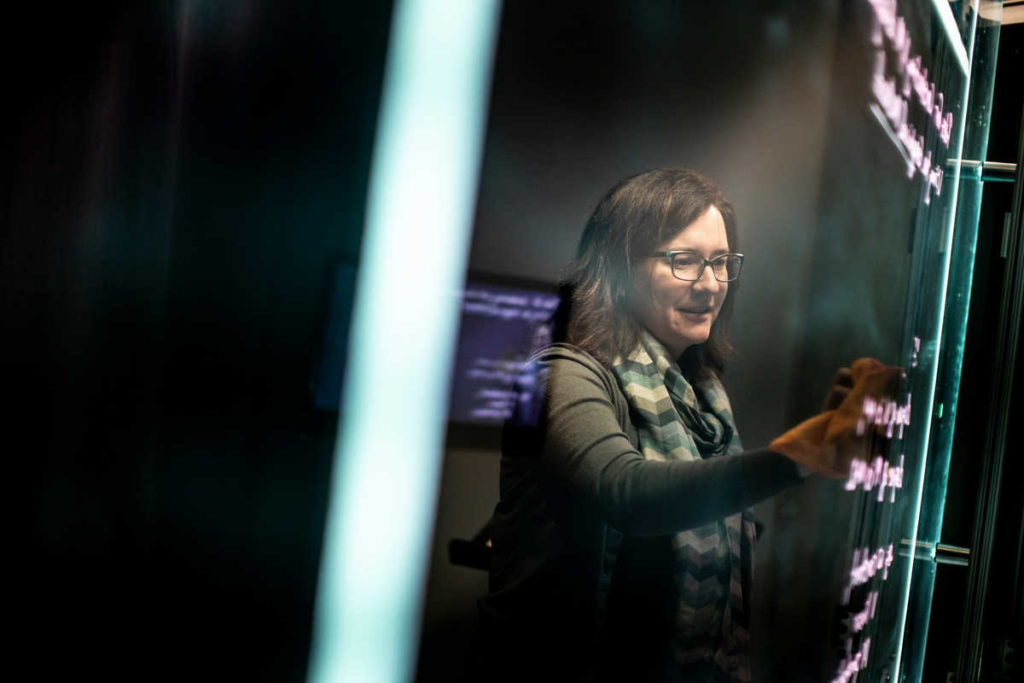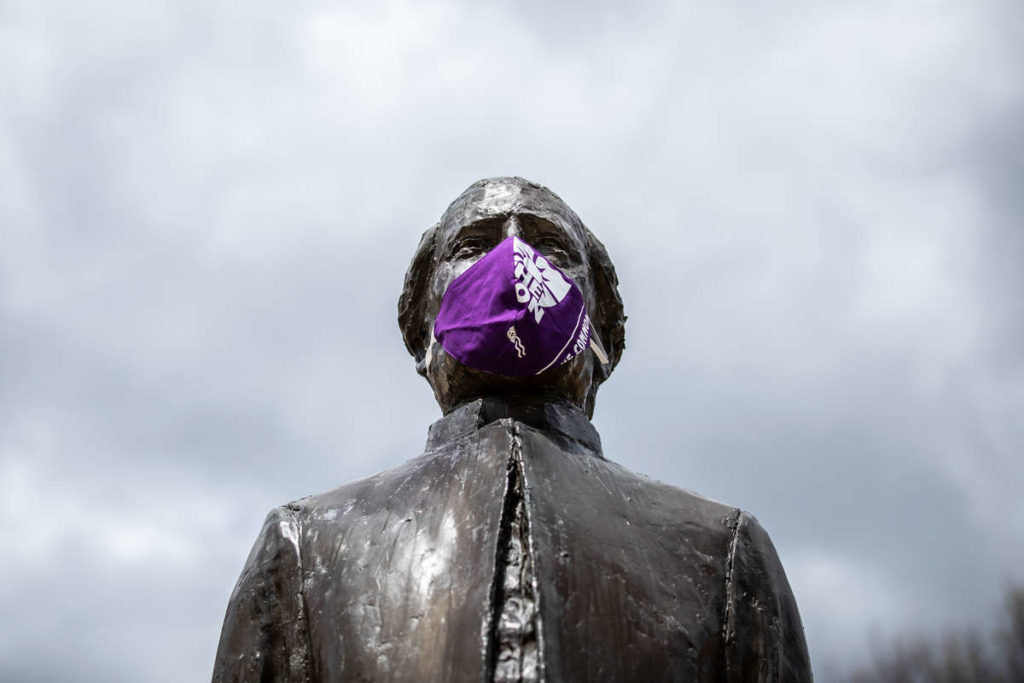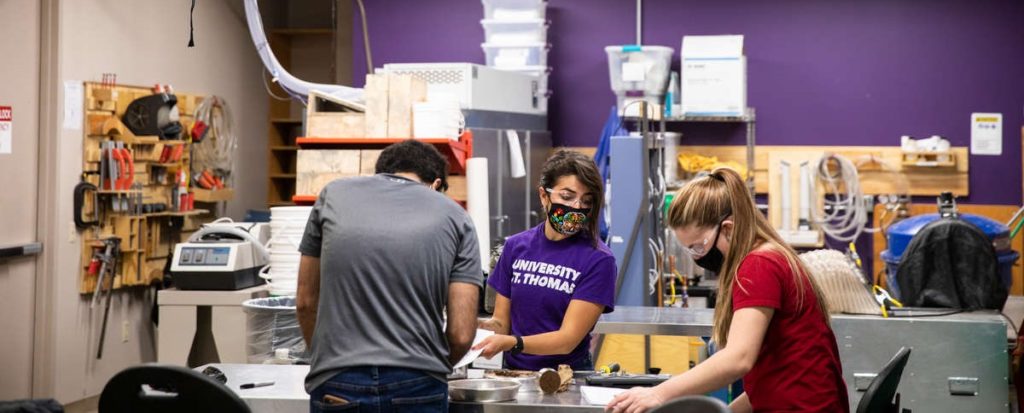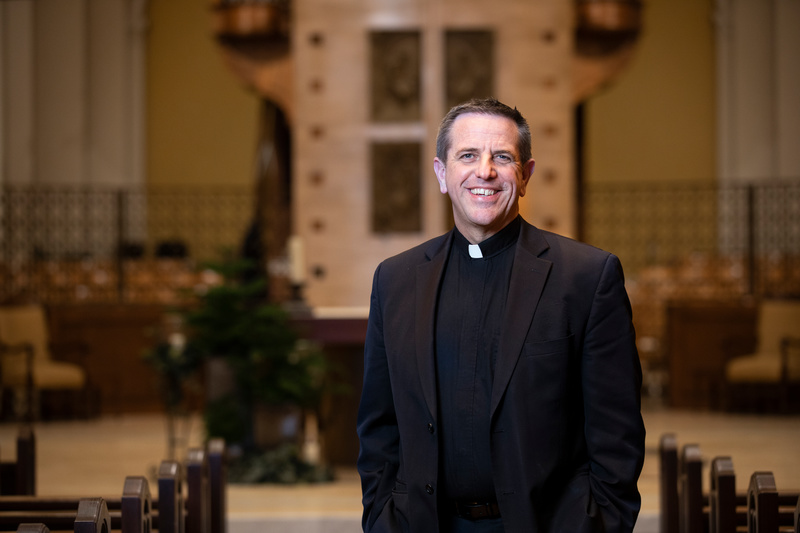As high school graduation approaches, more and more students are making decisions on higher education enrollment.
St. Thomas’ Admissions Department has made major changes to ensure prospective students and their families are getting the support they need as they navigate the challenges of COVID-19.“It’s really just offering care and compassion and empathy to them all, no matter what part they are in of this journey of a college search,” said Kristen Hatfield, director of admissions.
“Right now, more than ever, we’ve had to stay true to remembering why what we do is so important, why it’s so essential that we welcome a class of students so they can know our community and learn with us,” said Al Cotrone, vice president of enrollment management. “We have to go out there and meet with them in different ways than we ever have before.”
That difference was on full display April 26-30 as St. Thomas hosted virtual week for admitted students, where daily programming from academic panels to meetings with Residence Life welcomed thousands of students and family members to St. Thomas – digitally.
“That has been one of the shining moments of how the campus community has really come together to show off the community experience,” Hatfield said. “The turnout has been amazing.”
The week’s events are part of a huge expansion of digital offerings, including a video tour of campus; launching virtual appointments with admissions counselors; a 360-degree walk-through of campus; and more information through social media channels like Instagram. Financial Aid has also shifted all of its paper communication online and made shifts to scholarship awarding, and is providing Zoom and phone appointments with staff. St. Thomas’ confirmation deposit deadline also moved back to June 1.
Throughout everything has been a desire to help students in whatever ways possible, said Bryan Gates, associate director of first-year admissions.
“The goal was to loosen all the typical rules so students felt like they were getting respected in the process, still had options and could make decisions on some of the important things immediately,” he added. “It’s easier than ever right now to look at the mission of the university, the common good and focusing on students first. … It’s pretty easy to want to serve people.”
